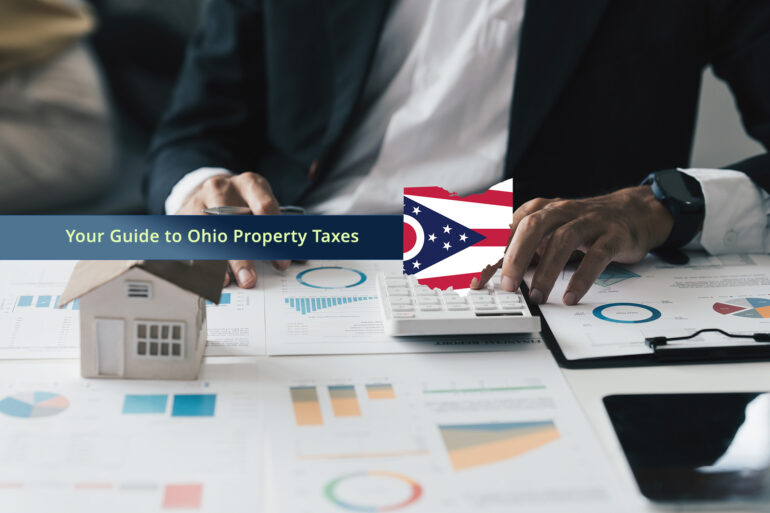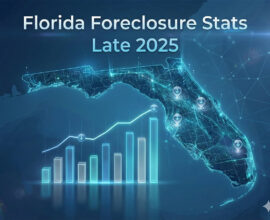Your Guide to Ohio Property Taxes
Did you know that taxes imposed on real property are the oldest type of tax in Ohio? In 1825, value-based real property taxes were introduced in the state. Ohio’s code defines the term “real property” as land, which includes anything growing on it, in addition to buildings, structures, or other fixtures.
All owners of real property are subject to property taxes unless they qualify for an exemption, such as nonprofit or government entities. The funds received through property taxes support state agencies and services, law enforcement, parks, schools, libraries, and more.
Today, the Ohio Department of Taxation maintains a limited, supervisory role, primarily concerning the way that property is appraised. Although the state dictates the rules and regulations of this uniform property tax system, all collection activity and day-to-day administrative duties remain the responsibility of the individual counties and municipalities.
For example, in Hamilton County, which is seated in Cincinnati, the county treasurer handles property tax collection. This treasurer maintains responsibility for taxes associated with real estate, personal property, and manufactured homes. The basis for property tax calculations is the value of the property and any tax levies approved by voters.
How are property values determined for tax purposes in Ohio? The auditor of each county performs “full” appraisals of all properties every six years, with some limited updates occurring at the three-year mark.
FYI: Although all Ohio counties perform formal property appraisals every six years, their schedules or intervals vary. For example, Franklin County (Columbus) reappraised in 2023, while it occurs in Cuyahoga County (Cleveland) in 2024.
Data indicates that Ohioans pay higher than average property taxes compared to other U.S. states.
The Impact of the Recent Housing Market on Property Taxes
Home prices have continued rising in recent years across many of Ohio’s housing markets. Several factors contributed to the continued surge in home values. For example, the abrupt rise in demand for homes during the COVID-19 pandemic, ultra-low interest rates in 2020-2021, and a lack of new home construction activity stemming from supply-chain problems.
While rising home prices are generally seen in a positive light and indicate a healthy market, many Ohioans are struggling with the increases in property taxes. A report from Cincinnati’s ABC affiliate WCPO 9 explained how one homeowner saw his yearly property taxes increase by $900. In Miami County, the average tax increases for 2022 were 11%.
Comparing Ohio’s Property Tax Rates Against Other States
Data indicates that Ohioans pay higher than average property taxes compared to other U.S. states. For 2022, the average property tax rate in Ohio was approximately 1.56%. For comparison, the lowest rates existed in Hawaii (.28%) and Alabama (.41%), and the highest were in New Jersey (2.49%) and Illinois (2.29).
Ohio homeowners paid an average of $3,725 compared to the national average of $2,475 in 2022. Cuyahoga County had the highest rate at 2.51%, and Lawrence County has the lowest rate at .86%.
Kiplinger recently compared the overall tax burden across the U.S. among all types of state and local taxes. The report described Ohio’s state income taxes as “reasonably light.” However, they found that property taxes and municipal and school district taxes were higher than most.
Homeowners may challenge the appraised value of their property.
The Property Appraisal Process in Ohio
Counties have a tax “equalization” division or unit responsible for generating reports of sales involving similar properties. These comparable properties or “comps” provide a basis for determining the value. Ohio’s Constitution has a “10-mil limitation” that restricts the levying of property taxes to levels that exceed 1% without voter approval.
Ohio’s Legislative Service Commission offers county-level auditors or commissioners much more flexibility in their three-year interim (triennial) updates regarding formulas or methods for appraising properties.
After the county-level appraisals finish, the Ohio Department of Taxation receives the information. Here, the state reviews the appraisal values for accuracy and consistency and may reject the appraisals based on their findings. The state review process serves as a type of checks and balances process.
Despite remaining subject to property taxes in Ohio, manufactured homes typically pay only based on the home’s value. The land that the manufactured home resides on is often excluded.
Ohio’s Property Tax Credits
Real property exemptions apply to governmental structures and others, including churches and charitable organizations. The state also offers a basic property tax credit called the Owner Occupancy Credit.
Owners that reside on the property, which serves as their primary residence, are eligible for a 2.5% tax credit. Homeowners (and spouses) may only receive this credit on one home.
A Damaged property deduction is also available for those with a property that endures severe damage. The amount of the credit varies according to the severity of the structural damage.
Ohio’s Homestead Exemption
Voters supported a constitutional Homestead Exemption amendment in 1970 that provided property tax relief for seniors with lower incomes. A change to the program in 2007 allowed all homeowners aged 65 or older to qualify regardless of their income level. The state reversed the 2007 measure in 2014 and now has income-based limitations once again.
The overall, current qualification guidelines are as follows:
- Qualified individuals include anyone at least 65 years of age with an adjusted gross income of no more than $34,600.
- Individuals with a permanent or total disability will qualify.
- Individuals aged 59 or older who are surviving spouses of a qualifying taxpayer also qualify.
Property owners often benefit from increasing values.
How Property Owners Calculated Their Tax Obligation in Ohio?
The following example illustrates the way that property taxes are calculated in Ohio. Each county posts its jurisdiction’s tax rate. The taxable value of a home equates to 35% of the overall appraised value.
Appraised Home Value: $300,000
Cuyahoga County Tax Rate: 2.51%
Taxable Home Value: $300,000 x .35 = $105,000
Property Tax Calculation = $105,000 x 2.51 = $2,635.50
Challenging or Appealing the Your Property’s Appraisal Value and Tax Obligation
Homeowners may challenge the appraised value of their property. Each county maintains a Board of Revision specifically for facilitating these appeals or challenges. Here, the owner must provide some written documentation in support of their assessment of the property’s fair market value.
A property owner will typically obtain an appraisal performed by an independent professional. Some procedural variances exist between counties for the appeals process. The first step is usually an Informal Value Review, which involves a reassessment performed by a member of the county’s appraisal staff.
The next step is a formal Complaint Against the Valuation of Real Property. In Hamilton County, filings must be received between January 1 and March 31 of the year. Keep in mind that the property owner (complainant) has the burden of proof in these matters.
Some of the evidence that the county will consider include:
- Documentation including a closing statement or purchase contract from a recent sale.
- Independent property appraisals.
- Repair estimates for property deficiencies.
- Statements containing information regarding income and expenses if the property is a rental unit.
Overdue Ohio Property Taxes and Tax Liens
Homeowners with unpaid property taxes might face the Tax Lien Sale process that the county uses for collecting such delinquencies. The country will advertise the sale of a tax lien certificate. After the lien process begins, the property owners must either pay the balance in full or agree to a payment plan approved by the County Treasurer to halt proceedings.
The purchaser of a tax certificate assumes the superior lien position for the property and may initiate foreclosure proceedings after one year.
Outlook for Ohio Property Taxes
Property owners often benefit from increasing values. One drawback is that these increases will likely also result in higher property taxes. Those most vulnerable in these situations are likely senior homeowners with fixed incomes.
In some Ohio counties, homeowners are often eligible for incentives. For example, in December 2022 in Hamilton County, the commissioners approved a 10.5% property tax “rollback.” This initiative was largely passed as a means of offsetting rising expenses associated with inflation.
Conclusion
Property taxes in Ohio have a rich history, having been in place since 1825. While all owners of real property are subject to these taxes, certain exemptions and credits are available to lessen the burden. Ohio’s property tax rates are on the higher side compared to other states, and rising home values can potentially result in even higher property taxes.
As home values continue to rise in Ohio, property owners need to stay informed about their tax obligations and potential tax relief options available to them.








